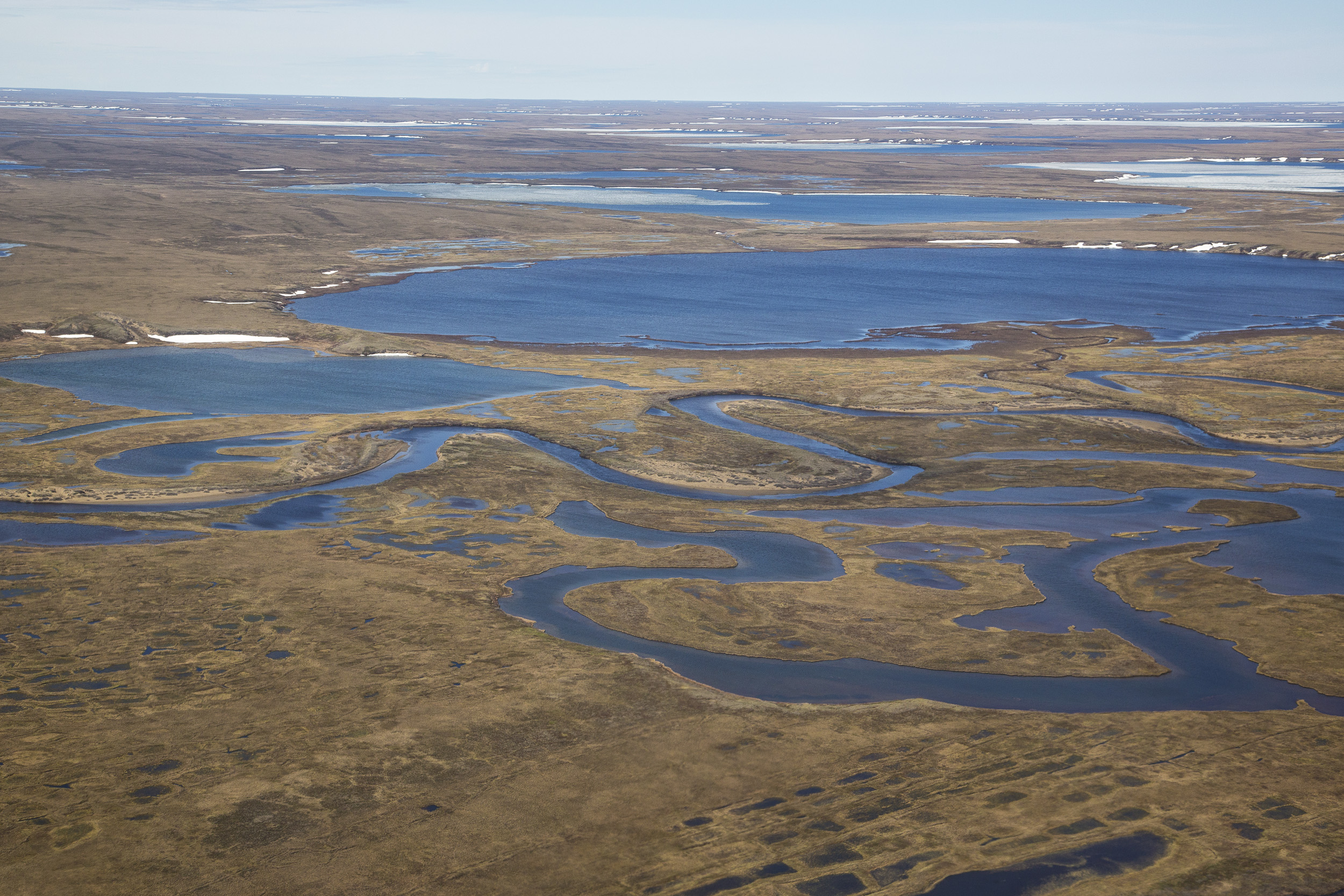Across the Arctic, lake ice is melting out earlier in the spring

A study of 13,000 lakes throughout the Arctic finds that ice-out could occur as much as month earlier each spring in the decades to come. Such changes would result in increased levels of greenhouse gasses in the atmosphere and affect the livelihoods of nearby communities that rely on lakes for subsistence or transport during winter months.
The findings, published on Dec. 7 in the journal Scientific Reports, are based a study of satellite data collected between 2000 and 2013.
All five regions looked at in the study (Alaska, northeastern Siberia, central Siberia, northeastern Canada and northern Europe) showed evidence of earlier break up, but the change in the average ice-out date varied from 1.4 days, in central Siberia, to 0.84 days, in northern Europe.
Although the study underscores that including ice-out dates from such a large number of lakes over a relatively short period required sorting through a lot of static — small lakes, for example, are more affected by warmer temperatures — the authors say the results concur with previous studies that relied on direct observation of ice-out dates of individual lakes.
In the end, the authors conclude that the findings indicate there is a relationship between the earlier melt date and the rise in temperatures seen during the study period. This, they say, adds to a mounting body of scientific results linking warmer temperatures with changes in the Arctic environment.
Previous studies have also indicated that lakes are also beginning to freeze over later each autumn. This was something that the current study was unable to confirm, however, given the lack of daylight during the autumn freeze-over periods, which makes observation using satellite imagery unreliable.
Should the trend towards a later ice-out date continue, the authors predict there will be a number of consequences, including changed lake biology, due to warmer water temperatures, and the possible thawing of lakes that currently remain frozen year round.
“Such changes would affect fundamental habitat conditions within the lake,” the authors write.
When it comes to greenhouse gas levels in the atmosphere, warmer lakes be able to absorb less carbon dioxide while at the same time releasing more methane, which has 30 times the warming potential of carbon dioxide.